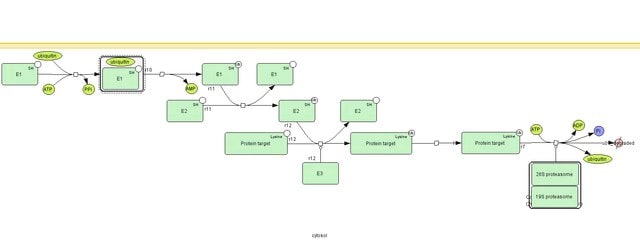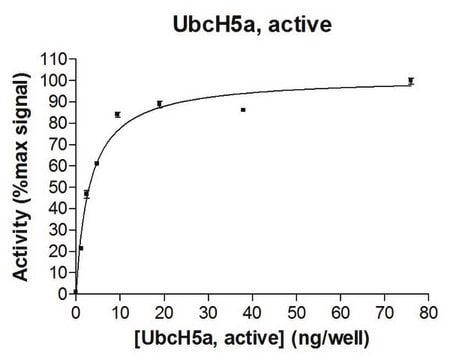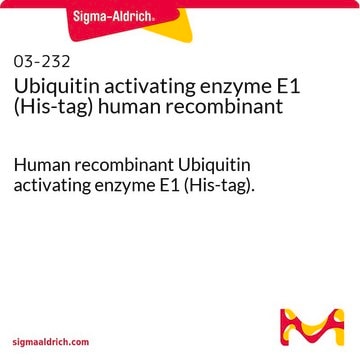U5507
Ubiquitin human
recombinant, expressed in E. coli (N-terminal histidine tagged)
About This Item
Produits recommandés
Source biologique
human
Niveau de qualité
Produit recombinant
expressed in E. coli (N-terminal histidine tagged)
Pureté
≥95% (GE)
Forme
lyophilized powder
Poids mol.
10.7 kDa
Technique(s)
ligand binding assay: suitable
Solubilité
Tris-HCl, pH 7.5: 1.0—1.10 mg/mL, clear to slightly hazy, colorless
Adéquation
suitable for molecular biology
Température de stockage
−20°C
Vous recherchez des produits similaires ? Visite Guide de comparaison des produits
Description générale
Ubiquitin is a highly conserved protein composed of 76 amino acids, and it is expressed universally in all eukaryotes, ranging from yeast to humans.
Application
- as a substrate in in vitro ubiquitination assays
- as substrate in ADP-ribosylation and ubiquitylation assays
- to supplement the 64 ng of endogenous ubiquitin in fresh blood for experiment grouping in order to study its potential clinical impact on cancer prognosis
Actions biochimiques/physiologiques
Notes préparatoires
Code de la classe de stockage
11 - Combustible Solids
Classe de danger pour l'eau (WGK)
WGK 3
Point d'éclair (°F)
Not applicable
Point d'éclair (°C)
Not applicable
Équipement de protection individuelle
Eyeshields, Gloves, type N95 (US)
Certificats d'analyse (COA)
Recherchez un Certificats d'analyse (COA) en saisissant le numéro de lot du produit. Les numéros de lot figurent sur l'étiquette du produit après les mots "Lot" ou "Batch".
Déjà en possession de ce produit ?
Retrouvez la documentation relative aux produits que vous avez récemment achetés dans la Bibliothèque de documents.
Les clients ont également consulté
Notre équipe de scientifiques dispose d'une expérience dans tous les secteurs de la recherche, notamment en sciences de la vie, science des matériaux, synthèse chimique, chromatographie, analyse et dans de nombreux autres domaines..
Contacter notre Service technique









